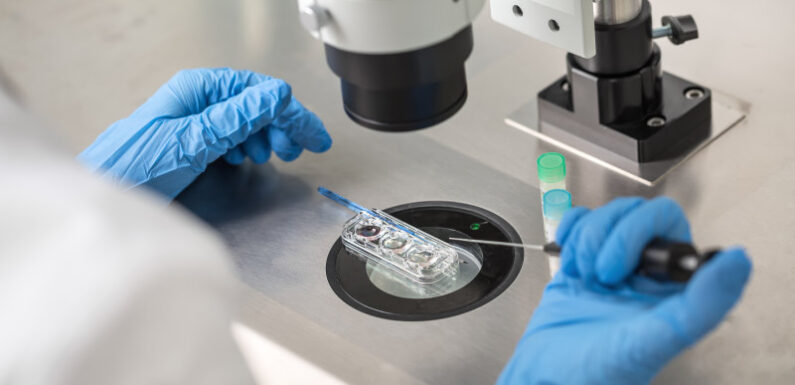
Save articles for later
Add articles to your saved list and come back to them any time.
A mega health regulator will be established to rapidly respond to crises in areas such as IVF, pest control, vaping and radiation safety as the Victorian government increases its capacity to tackle emerging medical and safety issues.
Health Minister Mary-Anne Thomas told this masthead on Tuesday many of the Health Department’s watchdog functions would be centralised in a new “super-team of regulators” – called the Health Regulator – within the year to better direct resources to where they were needed.
The state’s IVF and fertility industry will be overseen by the new body. Credit: iStock
“It’s actually just trying to make sure that we deliver a fit-for-purpose modern regulator that makes it easier for people to do the right thing,” she said.
“When you have got regulation spread across all these internal regulators, we know it’s hard. It’s hard for people to know who to ring, where to get the information, [where] to look on the website.”
Thomas said the new body would have responsibility for food safety, private hospitals, day procedures, non-emergency patient transport, first-aid service providers, tobacco and e-cigarettes, safe drinking water, child safety in health services, legionella risk management, pest control and radiation safety.
“We’ve announced the policy position, now we have to do the work to make some changes to legislation. I anticipate that will still take up to a year,” she said.
Health Minister Mary-Anne Thomas says the change is not driven by a desire to cut costs.Credit: Justin McManus
Sitting within the Health Department, the new regulator will also be responsible for Victoria’s real-time prescription medicine monitoring system, SafeScript.
The existing watchdog of the state’s IVF clinics – the Victorian Assisted Reproductive Treatment Authority (VARTA) – will be wound up and absorbed by the Health Regulator.
The move follows a 2019 review of assisted reproductive treatment in Victoria that recommended an industry regulator be granted more extensive enforcement power, after finding VARTA was taking a “light touch” to system oversight.
Michael Gorton, an experienced health lawyer who led the assisted reproductive treatment review, said VARTA was hamstrung by limits to its regulatory powers.
“You either had to take away [a clinic’s] licence … which would penalise lots of people who were seeking treatment … or you do nothing,” he told this masthead.
However, Gorton said he would have preferred the regulation of the IVF and fertility industries to have remained independent of government.
In the past financial year, 93 adverse incidents were reported to VARTA, including two label check errors that resulted in five eggs and a viable embryo being lost.
One prominent Melbourne IVF clinic has had significant conditions placed on its registration after allegedly breaching an order not to import sperm and eggs from war-torn Ukraine.
“At the heart of this is making sure … that families and donor-conceived children are at the centre of the way in which we regulate the sector, and that’s why we really want to bring it into government,” Thomas said.
The health minister said it was too early to say if the change would result in any job losses at VARTA, but stressed the move to centralise health regulation wasn’t driven by a desire to cut costs amid rising government debt.
She said a key rationale of the reform was to make it easier for businesses to ensure they were complying with regulations.
“The jobs that are being done will still need to be done … It’s not related to budgetary considerations at all,” Thomas said.
The latest annual report from the Victorian Department of Health offers an insight into some of the tasks likely to be taken on by staff at the new regulator.
It shows that two private cosmetic day procedure centres had their registrations suspended in 2022 after they were found to be unsafe. Officials visited 1450 tobacco and vaping stores and made about 3500 trips to monitor smoke-free areas. They also inspected 1270 cooling towers, which have been linked to outbreaks of Legionnaires’ disease.
There was an increase in reports of suspected water contamination in the 2022-23 financial year. In some of the 68 cases, E. coli was detected – suggesting faecal contamination may have occurred – and 11 drinking water advisories were issued as flooding affected the appearance of drinking water.
Start the day with a summary of the day’s most important and interesting stories, analysis and insights. Sign up for our Morning Edition newsletter.
Most Viewed in National
From our partners
Source: Read Full Article

